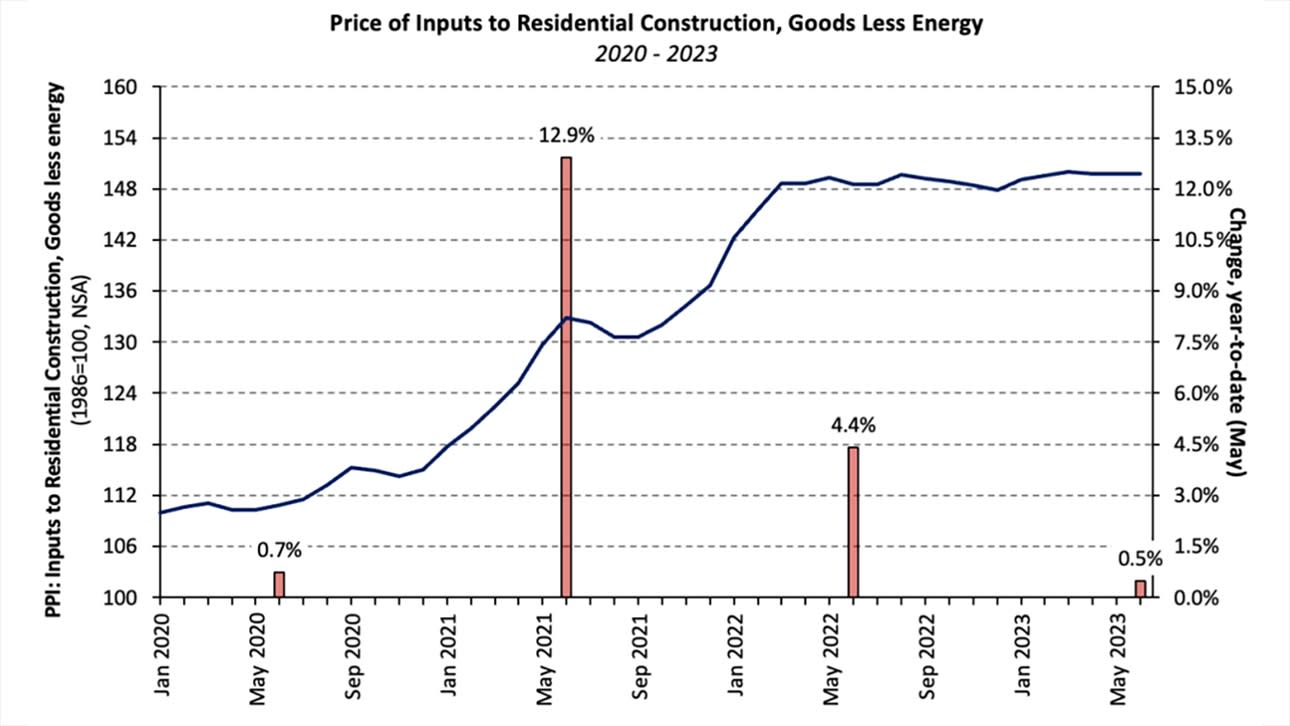Understanding the Impact of Inflation on Real Estate
In today's dynamic real estate market, clients often seek clarity regarding the effects of inflation and interest rates on their investments. Here are seven answers to address their pressing questions:
How Does Inflation Influence Real Estate Prices?
Inflation can significantly impact real estate prices. As the general price level of goods and services rises, so do construction costs and property maintenance expenses. Consequently, this leads to an appreciation of real estate values. Data from the National Association of Home Builders (NAHB) indicates that for every 1% increase in inflation, construction costs rise by approximately 2.5%. This directly translates to increased property values, as sellers aim to cover higher expenses.
Source: NAHB Construction Cost Surveys, 2020-2023
Are Rising Interest Rates Detrimental to Real Estate Investments?
Rising interest rates can initially cause hesitation among potential buyers. However, it's crucial to understand that they also signal a strong and growing economy. In the long run, this stability can contribute to a healthier real estate market. Historical data from the Federal Reserve shows that during periods of rising interest rates, the real estate market tends to experience slower but steady growth. This is indicative of a stable economic environment, which can be favorable for long-term real estate investments.
Is Real Estate a Reliable Hedge Against Inflation?
Absolutely. Real estate is historically recognized as a tangible asset that can hedge against inflation. Unlike currencies, which can depreciate over time, property retains its value and even appreciates in the face of inflationary pressures. A study by the Urban Land Institute analyzed real estate performance during periods of high inflation and found that, on average, property values outpaced inflation rates by 2-3%. This underscores real estate's reputation as a reliable hedge against inflation.
How Can Investors Leverage Inflation to Their Advantage?
Investors can strategically leverage inflation by utilizing fixed-rate mortgages. These mortgages allow investors to lock in lower interest rates, providing a competitive edge in a high-inflation environment. Analysis by mortgage industry experts reveals that individuals who secure fixed-rate mortgages during low-interest environments can save up to 30% on interest payments over the life of the loan compared to adjustable-rate options. This strategic move is particularly beneficial when inflation rates are expected to rise.
What Types of Properties Thrive During Inflationary Periods?
Historically, rental properties have shown resilience during inflationary periods. As rental rates increase alongside inflation, property owners stand to benefit from higher cash flow. Data from the U.S. Census Bureau demonstrates a consistent trend of rising rental rates during inflationary periods. On average, rental rates tend to increase by 3-5% annually in metropolitan areas experiencing higher inflation rates.
Should Clients Be Concerned About Fluctuating Interest Rates?
While fluctuating interest rates may initially seem concerning, it's essential to remind clients that a well-diversified real estate portfolio can help mitigate any adverse effects. A mix of residential, commercial, and industrial properties can provide stability in various market conditions. Research from the Real Estate Research Corporation (RERC) indicates that diversified real estate portfolios tend to exhibit lower volatility in response to fluctuating interest rates. This diversification strategy provides a buffer against market uncertainties.
How Do Global Economic Trends Influence Local Real Estate Markets?
Global economic trends play a substantial role in shaping local real estate markets. Factors such as international trade policies, currency exchange rates, and geopolitical events can have far-reaching effects on property values and market demand.An analysis by the International Monetary Fund (IMF) found that cities with strong and diverse local economies are more resilient to global economic shocks. Such cities tend to experience more stable real estate markets, with less drastic fluctuations in property values.
In conclusion
Understanding the intricate relationship between inflation, interest rates, and real estate is paramount for making informed investment decisions. Each of the seven questions addressed above sheds light on crucial aspects that can significantly influence your real estate ventures.
Partnering with Kwon Home Group elevates your investment experience to a whole new level. With a proven track record and a deep understanding of market dynamics, our team is dedicated to providing tailored solutions that align with your unique goals. Whether you're a seasoned investor or just stepping into the world of real estate, our expertise and personalized approach ensure that you navigate the market with confidence.
At Kwon Home Group, we don't just facilitate transactions; we build lasting relationships. Trust us to be your guide in every step of your real estate journey. Get in touch today and let's turn your property aspirations into thriving realities.
